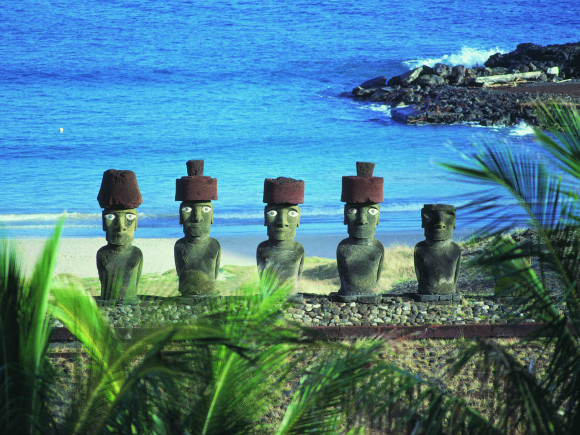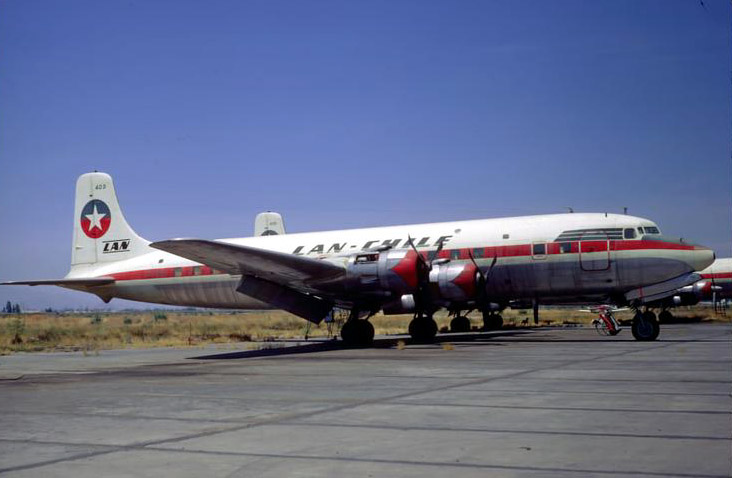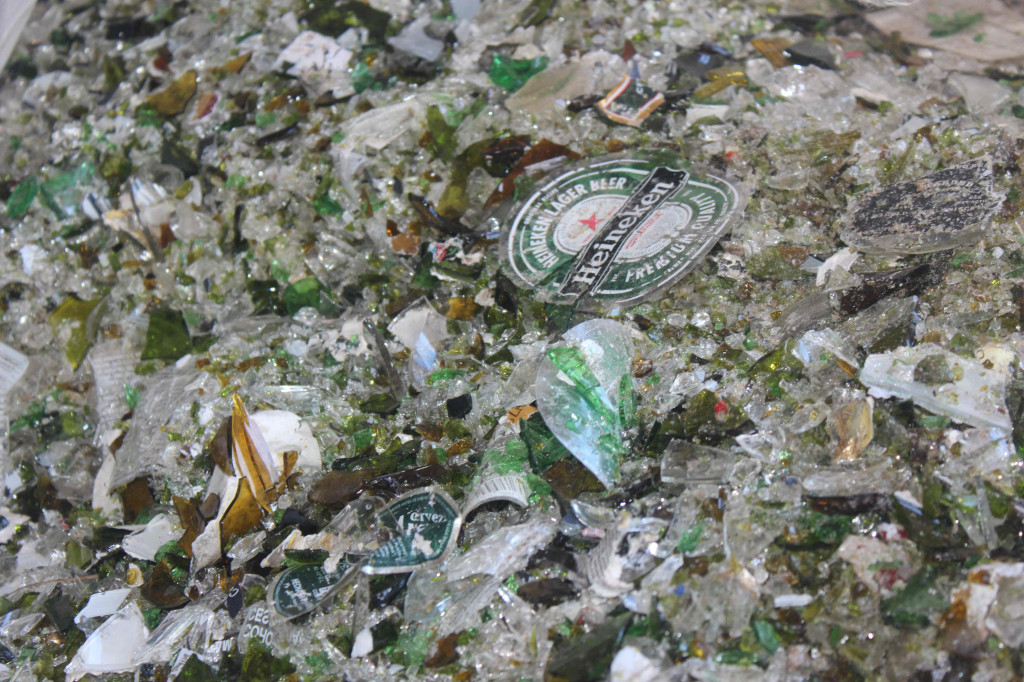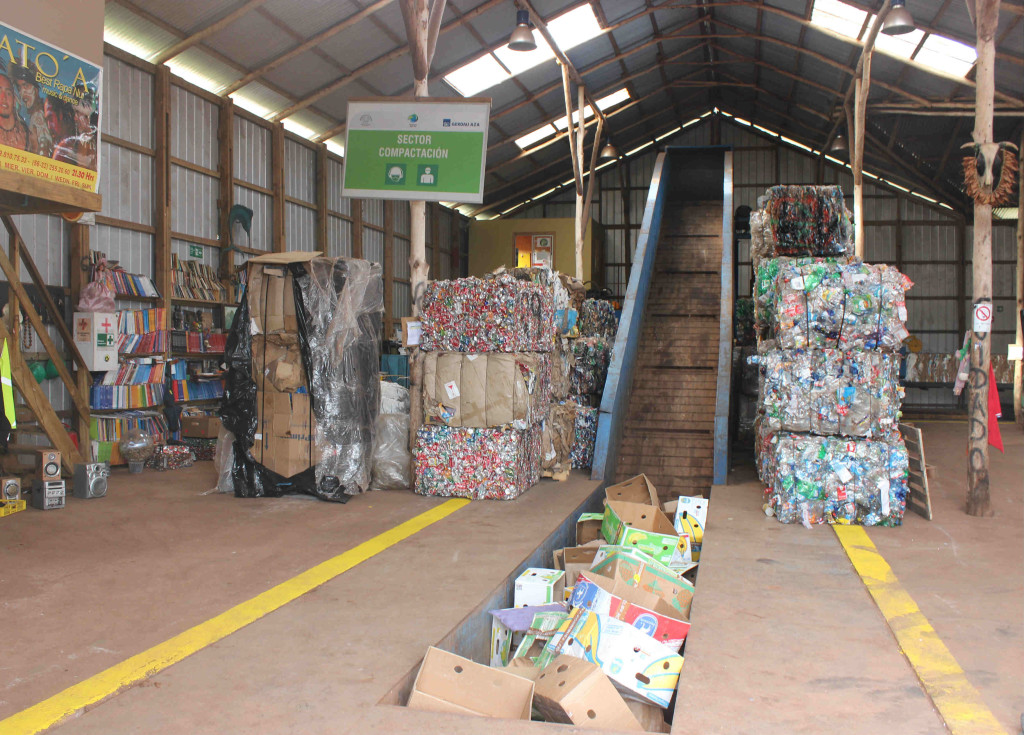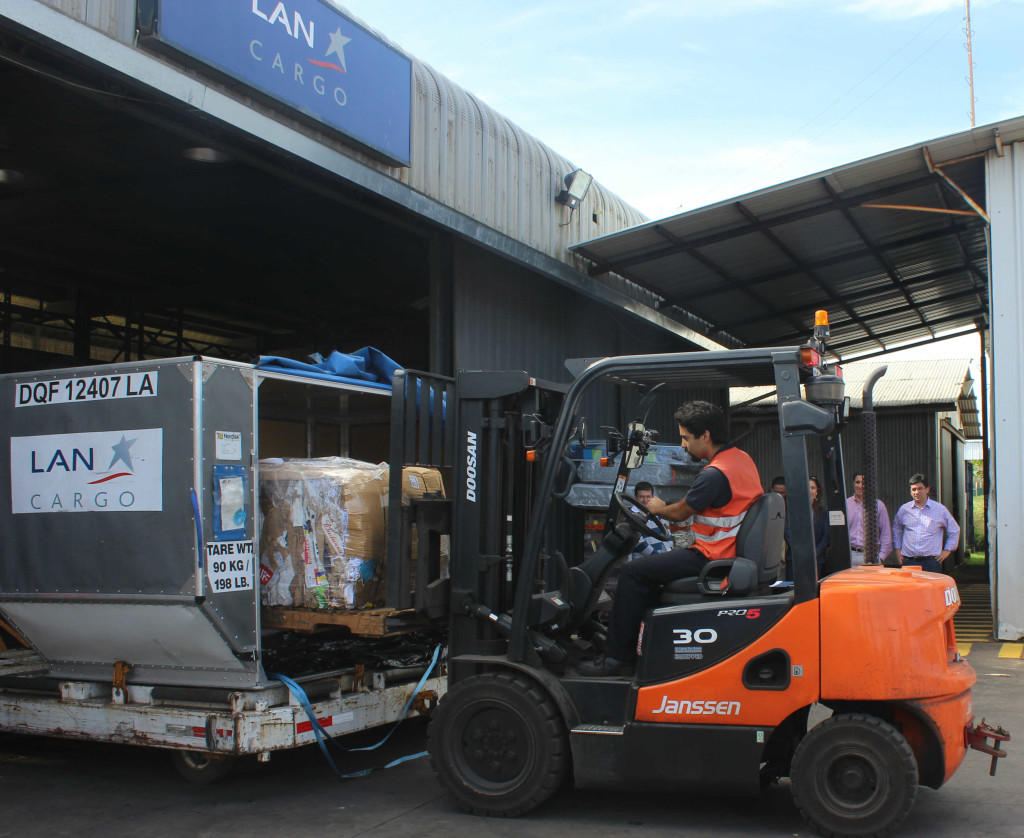On August 11, 2014, LAN CARGO and the local government of Easter Island signed an agreement for the free transportation of 12 bales of cardboard, each weighing an average of six tons, every week from Easter Island to be recycled and reused. The initiative is part of the company’s social responsibility program, whose goal is to provide support to isolated areas of Chile.
“With this initiative, LAN CARGO concretizes its incessant concern through initiatives in collaboration and coordination with local authorities. To this date, we have transported over 100 tons of cardboard from Easter Island to Santiago,” explained Luis Castellani, Commercial Manager for Domestic Cargo LAN CARGO.
This is how the story begins…
On April 3, 1967, after a 19-hour flight, a LAN DC-6 passenger aircraft landed on Easter Island, a small triangular strip of land in the middle of the Pacific Ocean, four thousand kilometers away from the continent. At that time, the Mataveri airport did not have a well-paved runway, nor did it have a control tower. The natives, who did not know of the existence of aircraft, called the enormous aircraft Manutara, which means “bird of good fortune” in Rapa Nui.
Easter Island, which belongs to Chile, emerged from the eruption of three volcanoes: Maunga Terevaka, Poike and Rano Kau. The island is located in Polynesia, a geographic location defined by an imaginary triangle whose vertices are New Zealand, Hawaii and Easter Island. Millions of years after it emerged, the island was populated by Polynesians, who brought their culture and traditions to it, making it a special place. Part of the mystique surrounding the island came from the Moai, the sculptures carved in volcanic rocks that can be seen all over the territory and today give island its identity and are its postcard.
More than 47 years have passed since LAN arrived for the first time at the most isolated island in the world, and it is still the only airline with daily flights to this mystical and remote place. Despite the technological advances, reduction in flight hours and improved airport infrastructure, the Santiago-Easter Island route is still one of the most complex routes operated by the company.
Legend has it…
That the complexities of this territory not only affect the airline, but also its population. The island is not self-sustainable and its 5,761 inhabitants live in a complex, unique and fragile ecosystem. Its area of 170 square kilometers made it very hard to treat the waste generated by natives and tourists who constantly visit the island. This has caused environmental problems such as water shortage, drought and saturation of landfills that receive trash from all over the island.
One of the measures taken by Mayor Pedro Edmunds was to raise awareness among the population about how to take care of the island based on the legend of Hotu Matu’a, the first king of Easter Island, who is credited with populating this paradise on earth that was revealed to him by the gods. It was thus determined that one of the municipality’s lines of work would be recycling.
It wasn’t an easy task. The team responsible for implementing the project also had the task of educating the population on how to treat personal waste. Little by little, the inhabitants learned more about the issue and became aware of the gravity of the situation and started sorting their waste. In May 2013, waste started being collected twice a week, and this year recyclable waste generated by the community is collected every day, reaching between 10 and 12 tons. Today, 20% of this total is recycled and the plan is to start recycling 50% in three years.
We want to turn our island into a sustainable place, a better land for our people. We want our children to be aware, to learn and take care of their land. We are taking efforts today so that future generations can have the same resources that we currently have,” explains Pedro Edmunds, the Mayor of Easter Island.
Solid waste management is done in two stages: the first is the process of collecting and transporting waste from different regions of the city. The second is based on activities at the landfill, involving either final disposal or packaging the recyclable waste.
Easter Island has two landfills and a recycling station, Orito, which receives paper, cardboard, Tetra Pak packages, glass, tires, PET plastics and electronic waste every day.
Air bridge between the island and the continent
Collecting and sorting waste was the first step of a long process. After this, it would be necessary to find a way to transport it to the continent to complete the recycling cycle. This was a complex task, since there are some sanitary restrictions to the entry of objects coming from Easter Island to continental Chile.
LAN is the only airline in the world to fly everyday to Easter Island and, apart from passengers, its aircraft transport various products to supply the island. The cargo is received, shipped and delivered by LAN CARGO. The company thus plays an important role in the life of the island’s inhabitants, since it is the only air bridge connecting them to the continent.
Transportation of cardboard
Sanitary authorities require that waste from Easter Island remain in quarantine before being transported to the continent. At present, only cardboard can be removed from the Island after six months in quarantine.
LAN CARGO’s concern and support to isolated regions of Chile arose in a project, implemented in partnership with the local government of Easter Island, aimed at cleaning up the island.
After some coordination effort, an agreement was signed to transport 12 bales, each weighing an average of six tons, per week free of charge. As soon as they reach the continent, the bales would be collected by a recycling company responsible for their final disposal and committed to handing over the profits to the local government for the construction of an ecopark.
It all started with a pilot plan in March this year, formalized in August through an agreement between LAN CARGO and the local government of Easter Island at the same recycling station of Orito. “With this initiative, LAN CARGO concretizes its incessant concern for the most isolated areas of our country and contributes to the sustainability of the recycling program implemented by the local government of Easter Island,” said Luis Castellani, Commercial Manager for Domestic Cargo LAN CARGO.
We expect to transport 350 tons of cardboard by the end of 2014, for which we are highly committed to the community of Easter Island and wish this action helps preserve the area and improve the quality of life of its people”, Luis Castellani, Commercial Manager for Domestic Cargo LAN CARGO.
This recycling plan has been widely recognized by environmental authorities of the Chilean government. Chile’s Minister of Environment, Pablo Badenier, who was present during the signing of the agreement, highlighted the city’s role in the issue of recycling, pointing out that due to the island’s peculiar conditions and the limited lifespan of landfills, it is vital to draft policies to reduce waste and strengthen public-private partnerships to promote sustainability, such as this one with LAN CARGO.
